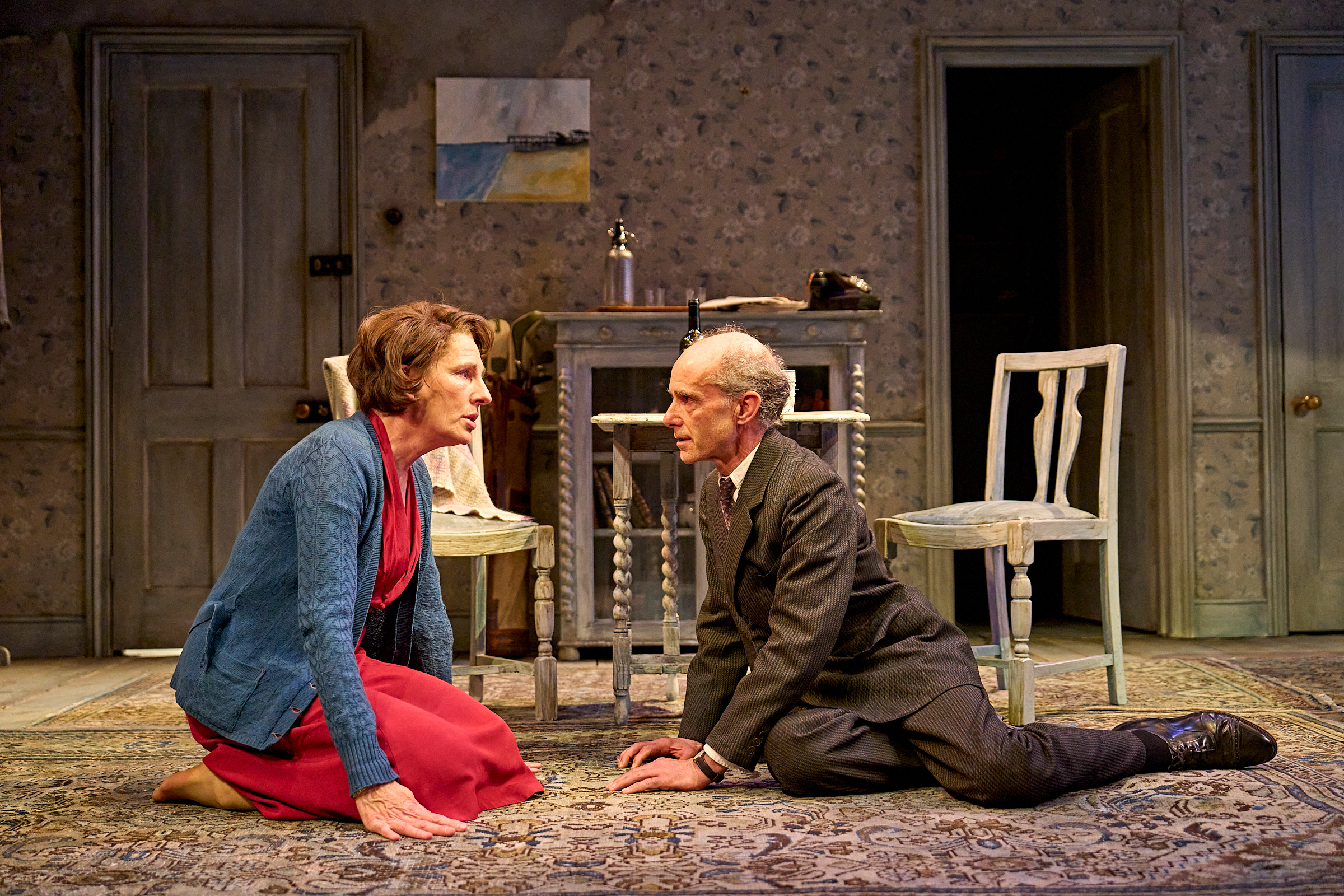Terence Rattigan’s The Deep Blue Sea would make rich material for the column of an agony aunt as much as a theatre critic. Its subject is profoundly psychological. Using the methodical and clarificatory form of the well-made play, Rattigan embarks on an investigation into one of the deepest mysteries of human nature: why people fall hopelessly, blindly, and lethally in love with those who will never be able to reciprocate the depth of their passion. Lindsay Posner’s production, which is enjoying a transfer from Theatre Royal Bath to London’s Haymarket, successfully demands the audience to play shrink and bring their own experience into the mix in order to understand these objectively illogical characters.
The play concerns Hester Collyer, a lady of Eaton Square who wants to live a little so chucks her judge husband and his financial security, and chooses to elope to Ladbroke Grove with Freddie Page, a war hero possessed of meretricious schoolboy charms, masking a heart utterly incapable of loving. But Rattigan is clever. None of this is offered upfront. In a manner akin to J.B. Priestley, we enter the action at a dramatic apex—Lady Collyer’s attempted suicide—and are tantalisingly invited to piece together how she got to this point from suggestive snippets of dialogue. A sort of theatrical Cluedo, if you like, which makes the emotional impact build slowly, like rising waves, until they crash in a flood of pathos.
Hester Collyer is a smasher of a female role. Her piercingly restrained lines leak emotion (it’s little wonder Pinter adored Rattigan), and incidental gestures, like polishing shoes, suggest a world of tenderness and care. Tasmin Greig does an admirable job in expressing Hester’s aching desperation through her contained suffering and breathless delivery of lines. Yet she never truly conveys the electric carnality that holds Freddie and Hester’s relationship together, however tenuously. Instead, her Hester is decisively maternal. She tends to Freddie like a loveably roguish son, anxious about his whereabouts and infuriatingly lenient when he deserves a firm scolding.
The supporting characters regrettably lack nuance despite their compelling watchability. Hadley Fraser as Freddie is a rotter Romeo. He encapsulates the scruffy Harrovian type who effortlessly breaks hearts but fails to solicit sympathy for his suffering as an RAF pilot adrift in a post-war world. His drinking habits are played as sheer irresponsibility and indulgence instead of a reaction to grief. Nicholas Farrell turns Hester’s husband into a faintly comic figure, a judge who lacks judgement and is prey to nonsensical, self-abasing passion. The best scenes come thanks to Finbar Lynch, who plays Miller as a terse-tongued aesthete, with a cigarette dangling between his fingers and his mouth dispensing pithy common sense. His presence always elevates the play’s abiding gloominess.
Peter McKintosh’s set is quietly evocative. With a colour palette of muted grey-blue, a sense that things between Hester and Freddie are washed out and diluted is brought to the fore. Walls peel; curtains are drawn; doors are shut. This is a world in which, despite the squalid boarding house’s numerous residents, there is containment and loneliness. The refrain of heart-wrenching 1940s classic ‘Stormy Weather’ articulated this, but in a way that was perhaps too on the nose.
Posner’s The Deep Blue Sea certainly attests to the fact that Rattigan’s writing continues to shine with mute beauty, holding all that isn’t or can’t be said. Its period trappings in no way hamper its ability to rawly anatomise what happens when you place your hopes for happiness in other people. Whilst this production has a tendency to reduce the life that brims in this play’s text, it is nevertheless an important revival, a plunge into the biting waters of unrequited love, and a reminder of the will to endure.
The Deep Blue Sea
By Terence Rattigan
Director: Lindsay Posner
Photo credits: Manuel Harlan
Cast includes: Tasmin Greig; Nicholas Farrell; Hadley Fraser; Finbar Lynch; Nicholas Farrell; Selina Cadell.
Until: Saturday 21st June 2025
Running Time: 2 hours and 30 minutes including a 20-minute interval
Review by Olivia Hurton

